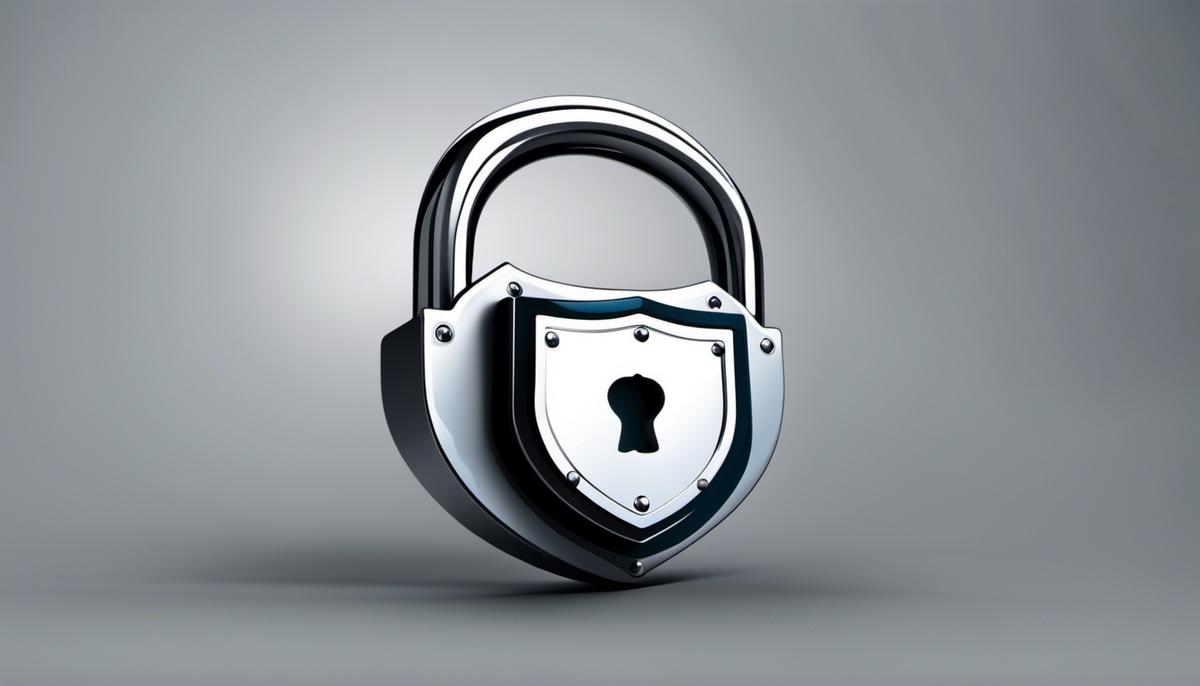In the fast-paced digital world, understanding the complex nature of website security and the role of SSL certification is paramount for everyone. Whether you are a website owner or a frequent user of varied internet services, it is crucial to grasp these elements to protect your data and enhance your understanding of secure internet interaction. This comprehensive guide elucidates the essentials of website security, from understanding website threats and their consequences to defining SSL certification and its vital role in creating a secure online environment. Through discussing the process of obtaining an SSL certificate and emphasizing its significance in website security and SEO ranking, we aim to offer non-technical readers a clear, concise, and comprehensive understanding of this intricate subject.
Basics of Website Security
Understanding Website Security
Website security refers to a set of measures taken to protect a website from cyber threats, unauthorized access, malicious activity, threats to its functioning, integrity and the confidentiality of the data it handles. With the internet becoming a fundamental part of modern life, website security has grown increasingly important due to the amount of sensitive data exchanged online.
Website security is essential because it not only protects your website from attacks but also maintains the trust of your customers or visitors. It helps prevent the misuse of personal data, ensures the website’s availability, ensures data integrity and confidentiality, and defends against malicious attacks such as malware, phishing, and DDoS attacks.
Failure to secure a website can lead to a loss of sensitive data, damage to your reputation, loss of trust from customers, and even financial loss.
Threats and Attacks to Website Security
Key threats to website security include malware, phishing, and DDoS attacks.
- Malware: This encompasses various forms of harmful, intrusive, or annoying software or program code. Malware could link your site to illicit networks, send unauthorized messages, act as a botnet in DDoS attacks, or spread other malware types.
- Phishing: This involves imitating legitimate websites to trick users into divulging sensitive information like usernames, passwords, and credit card details. For websites, phishing may occur when attackers gain access to your website and use it to host their phishing pages.
- DDoS Attacks: These are designed to overwhelm a server with traffic until it crashes, making the website inaccessible. A DDoS attack doesn’t breach the site’s security measures or steal information. However, it can significantly disrupt online businesses by blocking user access to services.
Securing Websites With SSL Certification Explained
SSL (Secure Sockets Layer) certification is a universally recognized security measure that facilitates encrypted interaction between a web browser and a web server. Being an industry essential, it is utilized by numerous websites globally to assure the protection of their online transactions with customers.
The primary function of an SSL certificate is to reinforce your website’s security via the establishment of secure connectivity between your website and a user’s browser. With this secure connection, any data exchanged between your website and the user remains encrypted, thereby reducing the risk of data interception. In simple words, an SSL certificate transforms your website address from “http://” to “https://”, which signifies a secured website to users and guarantees safe transmission of sensitive information such as credit card details or personal data.
Moreover, SSL certificates provide authentication, ensuring that the data is being sent to the correct server and not a fraudulent one attempting to steal information. As validation of domain ownership is involved, this enhances the security of the SSL certificates even more.
Ultimately, the key to website security lies in accurately identifying the threats and implementing preventive measures. SSL certification significantly contributes to this by supplying a strong encryption layer that protects sensitive information and boosts users’ trust in your site.

Understanding SSL Certification
Diving Deeper: Understanding SSL Certification
The Secure Socket Layer (SSL) certificate is a standardized security protocol that plays a crucial role in establishing an encrypted link between a web server and a browser. This process ensures that all data being transferred remains secure and isn’t easily intercepted by malicious elements. The SSL certificates synchronize a domain name, server name or hostname, and an organization’s information and location, further reinforcing the security of online transactions.
How Does SSL Certification Work?
SSL certification operates by using two keys – a public key known to everyone and a private key known only to the recipient of the message. When a browser attempts to send confidential information to a web server, the browser accesses the server’s SSL certificate and establishes a secure connection. This process is known as SSL Handshake and it occurs instantaneously.
Why is SSL Certification Essential for Website Security?
SSL certification plays a crucial role in web security for several reasons. Firstly, it encrypts the information submitted to the site so that it can only be viewed by the intended parties, preventing hackers from stealing and misusing the data. Secondly, SSL certification provides authentication to a website, assuring users that they’re sending their information to the correct server. Without an SSL certificate, it would be easy for attackers to impersonate a site and trick users into sending them personal information. Finally, it safeguards against eavesdropping, tampering, and message forgery.
Importance of SSL in E-commerce
If you run an e-commerce site, SSL protection is a must-have. Credit card information submitted to an SSL-protected website cannot be intercepted or stolen during transmission. This fortifies the trust between businesses and consumers, enhancing consumer trust and boosting sales.
Types of SSL Certificates
There are three types of SSL Certificates available today; Extended Validation (EV SSL), Organization Validated (OV SSL), and Domain Validated (DV SSL). The encryption levels are the same for each certificate; what differs is the vetting and verification processes needed to obtain the certificate.
How to Get an SSL Certificate?
To get an SSL Certificate, a website owner must generate a Certificate Signing Request (CSR) on their server, which creates a pair of public and private keys. The CSR data file sent to the SSL Certificate issuer (called a Certificate Authority or CA) contains the public key. The CA uses the CSR data file to create an SSL Certificate for your server, matching your private key without compromising its confidentiality.
Understanding SSL Certification
In the realm of internet security, SSL certification holds significant importance. It serves as a digital guard, ensuring the safe transit of sensitive data across the vast digital landscape. SSL certification plays dual roles by not only verifying the authenticity of a site but also by providing protection against malicious cyber-attacks. Equipped with such a certificate, a website can offer its users the assurance they need to safely explore and interact with its content.

Process of Obtaining an SSL Certificate
The Distinct Varieties of SSL Certificates
Functioning as digital stamps of approval, SSL (Secure Sockets Layer) certificates verify a website’s identity and its encryption capabilities. These certificates do more than just authenticate; they offer a seal of safety by ensuring that sensitive data such as credit card numbers and passwords are securely transmitted. There exist three main types of SSL Certificates: Domain Validation (DV), Business Validation (OV), and Extended Validation (EV) certificates.
- DV SSL certificate: This is the entry-level authenticating certificate. In this process, the Certificate Authority (CA) validates the applicant’s entitlement to utilize the respective domain. These certificates are the quickest and easiest to acquire, making them an ideal choice for blogs and personal webpages.
- OV SSL Certificate: This type of certificate takes the validation process up a notch, requiring the verification of a business or organization’s identity. Its validation process is comprehensive than that of DV, adding to its reliability. Corporations or public entities typically use OV certificates.
- EV SSL Certificate: EV SSL Certificates offer the highest degree of authentication. They necessitate a meticulous examination of the business by the CA, which includes validating the business’s legal, operational, and physical presence. Despite taking the longest time to issue, they provide the highest level of trust and security to the end users.
Purchasing an SSL Certificate
SSL Certificates are typically purchased from Certificate Authorities (CAs). There are many CAs in the world, but it’s crucial to choose a reputable one, as the security of your site depends on the reliability of the CA. To purchase, firstly, you need to create a Certificate Signing Request (CSR) on your server. This creates two keys – a public key, which will be included in your SSL certificate, and a private key, which must be kept secure and private. You will then need to send the CSR and other relevant information to the CA.
Validating an SSL Certificate
Once you apply for an SSL Certificate, the CA will need to validate your domain (for DV Certificates) or your company (for EV and OV certificates). The validation method depends on the level of certificate chosen. For DV SSL, an email is sent to the email address registered with the domain name. For OV and EV SSL, more rigorous validation is performed including checks of business registries, physical operations, and sometimes even face-to-face interviews.
Setting Up an SSL Certificate
The Certificate Authority (CA), upon successfully validating your details, will issue an SSL certificate. The installation process of this certificate can differ depending on your server type. Generally, it includes uploading the certificate files to your server and modifying your server’s configuration to accommodate the new certificate. Once the certificate is correctly installed, your website should be accessible using ‘https://’, indicating that SSL now secures it. For maximum effect, it’s advisable to create automatic redirects from the insecure ‘http://’ version to the secure ‘https://’ version of your website.

Role of SSL in Website Security and SEO Ranking
Grasping the Importance of SSL in Website Security
Secure Sockets Layer (SSL) certificates hold a paramount role in the security of websites by creating an encrypted connection between a web server and a browser. This encrypted connection ensures that all information transferred between the browser and server remains private and unaltered, thus, keeping sensitive data such as credit card information, usernames, and passwords safe from potential hackers. In the absence of an SSL certificate, this data is transmitted in plain text and easily targetable by hackers.
The given SSL certificate contains the details of the certificate holder, the certificate’s unique serial number and expiration date, a copy of the public key of the certificate holder, and a digital signature of the certificate-issuing authority. These details assist in verifying the identity of the servers in use and adding an additional trust factor to the associated website.
The Impact of SSL on SEO Ranking
While the primary function of SSL is to secure information transmitted over the internet, it also has a significant impact on a website’s Search Engine Optimization (SEO) rankings. In 2014, Google announced that it would use HTTPS (HTTP over SSL) as a ranking signal, meaning websites with SSL certificates would potentially rank higher in search results than those without the security measure.
Google views SSL certificates as a mark of a quality site deserving of ranking. This signifies that giving website users a safer experience is one of Google’s top priorities, and enabling SSL certification is a factor in determining the credibility of a website. Websites not only gain a security advantage with SSL but can also see an improvement in their SEO rankings, leading to more traffic and users.
Importance of SSL in User Trust
Another significant advantage of SSL is increasing users’ trust in a website. The visible indicators of an SSL certificate include the HTTPS prefix in the URL and a padlock symbol in the browser’s address bar. Seeing these markers assures users that the website values their privacy and security and is making an effort to protect their information. This boost in trust can lead to increased user engagement, higher transaction rates, and ultimately, better overall performance for the website.
Understanding and Implementing SSL
If you’re a website owner eager to ensure your visitor’s safety and boost your online visibility, you’ll need to get acquainted with SSL. SSL (Secure Socket Layer) is a security protocol that provides encrypted links between a web server and a browser. By purchasing an SSL certificate from a trustworthy Certificate Authority (CA), you can install it onto your site’s hosting account, which is a straight-forward process with most hosting platforms offering simple guides to follow.
Regardless of the size or purpose of your website, be it a personal blog or a large-scale e-commerce platform, integrating SSL should be at the top of your to-do list. Besides safeguarding your visitor’s data, it also augments your chances of achieving higher search engine rankings, enriching your site’s online presence.

Staying Updated on SSL Certificates and Website Security
An Introduction to SSL Certificates
To delve a little deeper, SSL Certificates are small data files that digitally tether cryptographic keys to your organization’s information. Once installed on a web server, they initiate the use of the secure https protocol, enabling safeguarded connections between the server and a browser. Essentially, these digital certificates are online identity cards, authenticating the website’s identity and securing all information shared over an internet connection. With an SSL certificate in place, your website can confidently protect sensitive data, such as credit card information, usernames, passwords and other crucial details, ensuring safe and private online transmissions.
Importance of SSL Certificates
SSL certifications are not just a technical detail of website administration; they represent a fundamental security measure that instills trust in your website visitors. Using these, sensitive data is encrypted before being exchanged between the user’s computer and your servers. SSL certificates also provide authentication which means you can assure your customers that they are sending information to a trusted server, not an impostor attempting to steal data.
Staying Updated
Technology, especially security technology, evolves quickly, and cyber threats are constantly evolving. Keeping SSL certificates current is critical for protecting against the latest types of attacks. Outdated SSL certificates can lead to warnings being displayed to users about insecure connections, discouraging them from using your website and potentially damaging your reputation. It also leaves the door open for hackers and cyber thieves to outsmart your defense system.
Staying Informed about SSL Certificates and Website Security
One of the best ways to stay informed about SSL certificates is to follow authoritative websites, forums, and blogs in the industry. Trusted sources will provide dependable updates on changes or upgrades in SSL certificate technology.
Signature algorithms, for example, are continually being refined and updated to provide more robust security. As such changes occur, website administrators are advised to adopt the updated SSL protocols to prevent hackers from exploiting any weaknesses in older, deprecated versions.
SSL Certificate Management Tools
Proper management of SSL Certificates may involve SSL Certificate management tools that provide features to discover, monitor, renew, and manage certificates from one friendly interface. These tools can even automate the renewal process to ensure uninterrupted security. This can save a lot of time and help avoid accidental lapses in encryption.
Keeping Up with Evolving Cyber Threats
Staying informed about evolving cyber threats is a crucial aspect of website security. This involves keeping up-to-date on the latest hacking techniques, security vulnerabilities, and protective measures. Consider subscribing to security newsletters and alerts from reputable security companies and research organizations. Regularly participating in online forums, webinars, and industry conferences can also provide insight into latest security trends.
Implementing a Strong Website Security Plan
The overarching goal should be to implement a strong, comprehensive security plan that covers all aspects of your website. This includes keeping software and systems updated, regularly reviewing and refining website security policies and procedures, and conducting penetration tests and security audits to identify vulnerabilities.
In short, SSL certificates are a vital part of website security, and staying updated on the latest trends and advancements in this field can help maintain a high level of security on your website.

Staying ahead of the curve is crucial in the evolving landscape of cyber threats and web security. Understanding the detailed process and significance of SSL certification, its role in website security, and its impact on SEO ranking, can markedly enhance your knowledge and potential ability to protect your online interests. Moreover, being informed about the latest trends and advancements in website security domain ensures that you can maintain a robust defense against cyber threats. By prioritizing a secure online environment continually, you can contribute to enhancing overall internet safety and make informed decisions regarding your online presence.
